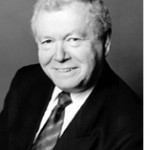By Rabbi Dow Marmur

JERUSALEM — Retired general Yoav Galant didn’t become chief of staff in 2011 because of an alleged land grab near his home. He’s back now as a politician and aspiring minister of defense in Moshe Kahlon’s new party Kulanu. No yet being schooled in the art of double-speak, he said that the recent Israeli operation in the Golan that killed an Iranian general and other senior officers in the service of Hezbollah (the terrorist organization committed to the destruction of Israel) was motivated by politics, not security.
Though he had to backtrack, he may nevertheless have been right. Because Prime Minister Netanyahu is doing badly in the polls – outflanked on the moderate left by the Zionist Camp led by Herzog and Livni, on the right by Bennett’s Habayit Hayehudi, and in the centre by Kahlon – he needs a military emergency to reinforce his image as the strong saviour of Israel who knows how to defend his country and its citizens.
Despite its fiery and belligerent rhetoric, it’s not likely that Hezbollah will respond because it’s said to have suffered heavy losses both in terms of manpower and funds in the Syrian war, and because it knows that an attack on Israel would compel the IDF to enter Lebanon to destroy its vast rocket stash.
Iran’s direct involvement is also unlikely, though I heard a serious television commentator view the killing of the Argentinian prosecutor who sought to implicate the country’s president and others in turning a blind eye to the largely Iranian attack on the Jewish community in Buenos Aires in 1994 as an act of Iranian retaliation.
But Hamas may oblige by renewing hurling missiles on Israel, and the Palestinian Authority may collude, if the contention is correct that for their internal political needs neither wants peace with Israel. Keeping Netanyahu and hardliners in power in Israel would make that easier. Attacks on Israel that force it to respond would greatly increase Netanyahu’s chances to be re-elected.
However, even that may not be enough, because polls suggest that in this election the majority of Israelis may be more concerned with social and economic issues than with defense, and that the majority wants peace negotiations. The Herzog-Livni camp is better equipped to respond to both these demands. Though the two may lack the alleged charisma of Netanyahu and some of the right-wing leaders, they’re strong on common sense, statesmanship and political strategy. It may lead them to victory.
Yes, the above is very cynical: (1) a convoy was attacked by what seems to be Israeli forces across its border, perhaps more for reasons of election politics than national defense; (2) Palestinians who’ve gone out of their way to accuse Israel of war crimes in the United Nations and the International Criminal Court may, in fact, want to involve themselves in Israel’s current election campaign in support of the prime minister.
I wouldn’t have dared express such suspicions had I not read and heard them being discussed in public in authoritative quarters in Israel. Apparently in the big time power game, sworn enemies can end up on the same side for seemingly mutually exclusive reasons.
All we hapless bystanders can hope for is that the worst of these cynical predictions won’t materialize and that decency and common sense will win in the end. I continue to be in search for support for such optimism. Please help.
*
Rabbi Marmur, spiritual leader emeritus of Holy Blossom Temple of Toronto, Canada, now resides in Israel. Your comment may be posted in the space provided below or sent directly to the author at dow.marmur@sdjewishworld.com